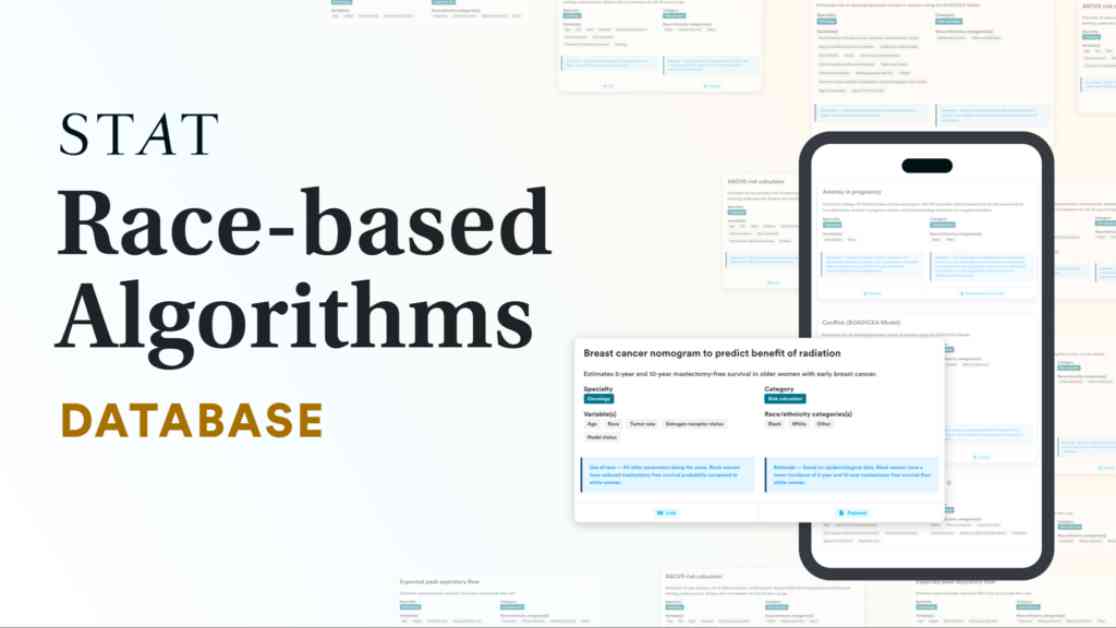Optimizing Clinical Care: Examining the Role of Race in Healthcare Tools
As healthcare continues to evolve, physicians rely on clinical algorithms to assist in making crucial decisions regarding patient care. These algorithms take into account various factors such as blood pressure, age, weight, surgical history, and in some cases, a patient’s race. The use of race-based tools in healthcare has been a topic of discussion and debate for many years, prompting bioinformatician Shyam Visweswaran to delve deeper into the issue.
Visweswaran, who serves as the vice chair of informatics at the University of Pittsburgh, first became interested in race-based algorithms in 2020 after a New England Journal of Medicine paper highlighted 13 common examples in medicine. This sparked his curiosity to explore the prevalence of such algorithms in clinical practice. Unable to find a comprehensive resource on the subject, Visweswaran took it upon himself to create a database of 48 clinical tools with race adjustments, shedding light on the scope of this practice in healthcare.
The release of this database in July 2023 brought attention to the inconsistent use of race in these tools and the implications it has on patient care. Visweswaran’s research revealed a staggering 49 distinct categories for race and ethnicity across the calculators, raising concerns about how patients of mixed ancestry are classified and treated within the healthcare system. This lack of clarity and uniformity in using race as a variable in clinical algorithms has raised questions about its validity and impact on patient outcomes.
While Visweswaran’s database provides valuable insights into the use of race in clinical tools, it is not a comprehensive list. There are numerous home-grown tools and algorithms used by hospitals and health insurers that are not included in the database. However, it serves as a starting point for clinicians and health systems to reevaluate their approach to incorporating race into healthcare decisions.
The scrutiny surrounding race-based algorithms stems from the perpetuation of the false notion that race determines biological differences among individuals. By categorizing patients based on race, these tools may inadvertently contribute to disparities in healthcare delivery and outcomes. As the healthcare industry strives to address issues of equity and inclusivity, reevaluating the use of race in clinical algorithms is crucial to ensuring fair and effective patient care.
Subheadings:
The Impact of Race in Clinical Algorithms
Challenges of Using Race as a Variable in Healthcare Tools
Moving Towards Equity in Healthcare Decision-Making
The Impact of Race in Clinical Algorithms
The integration of race as a variable in clinical algorithms has raised significant ethical and practical concerns within the healthcare community. By using race as a factor in determining patient care, clinicians may inadvertently perpetuate biases and stereotypes that can lead to disparities in treatment. The assumption that race can predict health outcomes overlooks the complex interplay of social determinants of health and individual factors that contribute to a patient’s well-being.
Moreover, the inconsistent use of race categories in clinical tools further complicates the issue. Patients of mixed ancestry or those who do not fit neatly into predefined racial categories may face challenges in receiving appropriate care based on these algorithms. The lack of clarity in how race is defined and applied in healthcare tools underscores the need for a more nuanced and inclusive approach to clinical decision-making.
Challenges of Using Race as a Variable in Healthcare Tools
One of the primary challenges in incorporating race into clinical algorithms is the lack of scientific basis for using race as a predictive factor in healthcare. While there may be correlations between certain genetic traits and race, these do not necessarily translate into meaningful differences in health outcomes. Relying on race as a variable in clinical tools runs the risk of oversimplifying the complex factors that contribute to an individual’s health status.
Furthermore, the historical and social context of race adds another layer of complexity to its use in healthcare tools. The legacy of racial discrimination and disparities in healthcare access and outcomes has led to justified skepticism about the role of race in shaping patient care. By uncritically accepting race as a predictive factor, clinicians and healthcare systems may inadvertently perpetuate inequities and biases that harm marginalized communities.
Moving Towards Equity in Healthcare Decision-Making
As the healthcare industry grapples with the implications of using race in clinical algorithms, there is a growing recognition of the need to prioritize equity and inclusivity in patient care. Reevaluating how race is incorporated into healthcare tools is a crucial step towards ensuring fair and effective treatment for all patients. By moving away from race-based algorithms and towards more evidence-based and patient-centered approaches, clinicians can strive to deliver equitable care that addresses the diverse needs of their patient populations.
In conclusion, the use of race in healthcare tools is a complex and contentious issue that requires careful consideration and reevaluation. By critically examining the implications of race-based algorithms and working towards more inclusive and equitable healthcare practices, clinicians and health systems can promote better outcomes for all patients. It is essential to prioritize patient-centered care and address disparities in healthcare delivery to create a more just and inclusive healthcare system for everyone.

















